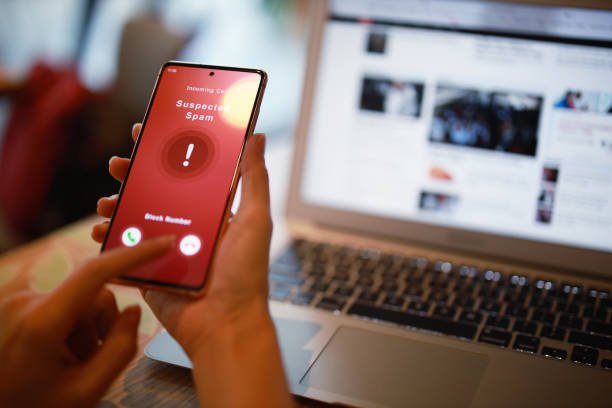Student loan robocalls have become a prevalent issue, affecting many individuals across the United States. One such number that has caught the attention of many is 844-994-4552. This article delves into the intricacies of this robocall, offering insights into its nature, how it operates, and steps you can take to protect yourself. The primary focus is on understanding the dangers associated with the 844-994-4552 student loan robocall and providing actionable advice to avoid falling victim to such scams.
What is a Robocall?
Robocalls are automated phone calls that deliver pre-recorded messages. Often, these calls are made en masse to a large number of recipients. While some robocalls serve legitimate purposes, such as appointment reminders or emergency notifications, many are used for fraudulent activities. Scammers use robocalls to trick people into revealing personal information, making payments, or subscribing to fake services.
The Rise of Student Loan Scams
The increasing prevalence of student loan debt has made borrowers prime targets for scammers. These scams exploit the anxiety and urgency borrowers feel about managing their loans. Fraudsters often pose as legitimate loan servicers, offering to help reduce or eliminate debt. However, their true intention is to steal personal information or money.
Understanding the 844-994-4552 Student Loan Robocall
The 844-994-4552 student loan robocall is one of many scams that target borrowers. Callers from this number often claim to represent a loan forgiveness program or offer a reduction in loan payments. The aim is to create a sense of urgency, encouraging the recipient to act quickly without verifying the legitimacy of the call.
Characteristics of the 844-994-4552 Call
- Automated Messages: The call typically begins with an automated message, presenting an urgent need for action regarding student loans.
- Phishing Tactics: Scammers may ask for personal information such as Social Security numbers, banking details, or Federal Student Aid (FSA) IDs.
- High-Pressure Sales Tactics: They may use scare tactics or promise unrealistic benefits to push the recipient into making a hasty decision.
Recognizing the Signs of a Scam
It’s crucial to be able to identify potential scams to protect yourself from falling victim. Here are some key indicators that a call may be fraudulent:
Unsolicited Contact
Legitimate organizations will not contact you out of the blue with offers to reduce your student loan debt. If you receive an unsolicited call, it’s essential to be cautious. Scammers often use robocalls to reach as many people as possible, hoping to find a vulnerable target.
Requests for Personal Information
No legitimate loan servicer will ask for sensitive information over the phone. If the caller requests your Social Security number, bank account details, or FSA ID, it’s a red flag. This information can be used for identity theft or to gain unauthorized access to your accounts.
Promises of Immediate Debt Relief
Be wary of any offer that seems too good to be true. Scammers often promise instant debt relief or forgiveness, which is not a realistic expectation. Legitimate debt relief processes take time and require proper documentation and verification.
How to Respond to a Suspected Scam Call
If you receive a call from 844-994-4552 or any other suspicious number, it’s important to handle the situation carefully. Here are some steps you can take:
Do Not Share Personal Information
Never share personal or financial information with an unsolicited caller. Legitimate organizations will not ask for this information over the phone.
Hang Up Immediately
If you suspect that a call is a scam, the best course of action is to hang up. Engaging with the caller can lead to further attempts to extract information or pressure you into making a decision.
Verify the Caller
If the call seems legitimate but you’re unsure, contact your loan servicer directly using a verified phone number or website. Do not use any contact information provided by the caller, as it may be fraudulent.
Report the Call
Reporting scam calls can help authorities track down and stop scammers. You can report the call to the Federal Trade Commission (FTC) or the Consumer Financial Protection Bureau (CFPB). Additionally, consider reporting the number to your phone service provider.
Protecting Yourself from Future Scams
Preventing future scams requires a proactive approach. Here are some steps you can take to protect yourself:
Educate Yourself About Scams
Stay informed about the latest scam tactics and warning signs. Knowing what to look for can help you avoid falling victim to a scam.
Use Call Blocking Tools
Many phone service providers offer call blocking or screening features. These tools can help prevent robocalls from reaching you. Additionally, consider using third-party apps designed to block or filter unwanted calls.
Monitor Your Accounts Regularly
Regularly check your bank and loan accounts for any suspicious activity. If you notice any unauthorized transactions, report them immediately to your bank or loan servicer.
Secure Your Personal Information
Be cautious about where and how you share your personal information. Avoid sharing sensitive details on social media or unsecured websites. Use strong, unique passwords for your online accounts and enable two-factor authentication where possible.
Conclusion
The 844-994-4552 student loan robocall is just one of many scams targeting borrowers. By staying informed and vigilant, you can protect yourself from these fraudulent activities. Remember to verify the legitimacy of any unsolicited call, avoid sharing personal information, and report suspicious calls to the appropriate authorities. Your awareness and proactive steps can help prevent scams and protect your financial well-being.

